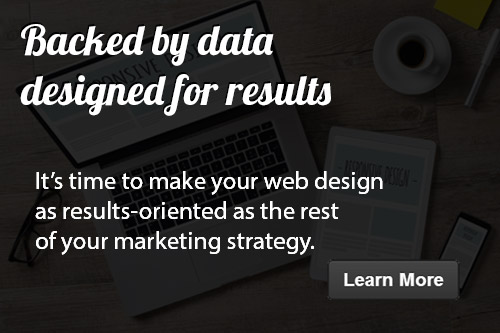
What do you want to be when you grow up?
Do you remember how you answered this question? It’s a question that has been asked of nearly all of us despite the fact it’s almost impossible to answer.
The average child ending a summer break generally answers this doozy in one of three ways:
- They have absolutely no direction or idea what they want to be
- They choose a noble profession (police or fireman)
- They dream up a fantastic and unrealistic profession held by an idol or hero (astronaut or professional baseball player)
- So what does this have to do with branding your startup?
You were a work in progress when you were six years old just like you are now as a fledgling startup looking to make its mark on the world.
Believe it or not the answers you gave when you were asked what you wanted to be when you grew up, or at least portions of them, can serve as guideposts now in identifying and developing your brand.
But before we show you how to cultivate a brand long before you’re a mature company, you’ll need to avoid the branding pitfalls that plague many startups. Creating a terrible brand may be just as bad or worse than creating no brand at all.
To keep from developing an ineffective brand, avoid these startup branding mistakes.
Startup Branding Mistakes to Avoid
The Promise Void
Startups often forget to make a promise to their users and tend to become overly focused on ancillary brand attributes.
Your brand, or at least its core, is a promise. It’s the promise you make to customers about what they can expect from you and your offering, exactly how you’ll interact with them, how you’ll treat them after a sale, and over the course of the relationship. Your brand is not a URL, logo, tagline, or web site color scheme (though these are important in communicating your brand and its personality). Your brand is a promise others expect you to keep.
The Outside-In Brand
Startups with brands that do not resonate or fail to gain traction are often built from the outside in. Instead of first looking inward, examining your purpose, and communicating your uniqueness outwardly as you should, outside- in brand builders look at others first, instead of themselves.
Building a brand this way can tempt startups to resemble, mimic, or copy competitors in their vertical and result in mistrust or being perceived as an also-ran. Identifying, assessing, and gauging the competition is how you identify pain points and gaps you can fill – not how you create something special.
Successful brands carve out a story no one else can see, tell, or truly copy – built from the inside-out.
Selling to Strangers
Startups still in search of a target market are not likely to develop a successful brand. Unless you intimately understand your desired customer, the story your customers tell themselves about startups like yours, and how your offering may fit within that story, telling a brand story that resonates is impossible.
Brands reside largely in the mind of the customer. If your niche is not well-defined or isn’t thoroughly understood, who are you going to build a brand with?
Writing Without Purpose
Emerging companies often fail to write with purpose during their first branding effort. Instead, founders obsessed with product design and functionality often fall prey to feature-focused writing that fails to communicate the offering’s larger benefit, purpose, or promise.
This is what we call “how writing” or copy that explains how you or your offering work. Conversely, successful startup brands create copy with “why writing”, or copy that communicates the why behind the product. People are wired to wonder why and often feel a void when they’re unable to discover the cause.
This can negatively impact consumer perception, trust, and preference. Fill this void with copy that answers the unspoken question every prospect is secretly asking about you.
Owning Your Brand
Startups particularly often believe they are the sole owners of their brands when in reality brands are co-created and co-owned by the company and their customers.
You don’t own your brand completely – your customers have a stake too.
Early stage companies that believe they own their brands can become distracted by what users are saying on social media, what the media reports, or how online review sites rate them. These are things that must not be ignored. However, obsessing over every word said about you is counterproductive if it prevents you from iterating, shipping, and evolving. Brand narratives will not be perfectly told every time, and that’s ok.
The goal is to make sure the core of your brand narrative remains intact as it is retold, filtered, and rated. The timing, details, and context accompanying your core brand narrative will all be determined by your brand’s co-owners. Your job is to steer them in the direction you desire.
Developing Startup Brands
The good news is you don’t have to have all the answers to create the beginning of a great brand.
You already have much of what you need to build a brand foundation:
- your brand is your promise to customers
- your brand is an extension of your personality
- your brand is the story you tell with your customers
It means you don’t need to know exactly what your company will look like in ten years or how it’ll get there. Sound familiar? You didn’t know exactly what you wanted to be when you were six years old but here you are today a focused entrepreneur working to make a difference.
Think back to the three most common answers to the question we were all asked as kids. Each of them, though lacking in many respects, contained a nugget of wisdom you can use today to begin creating your brand:
- Direction - you may not know exactly what the future holds, just like a child with no idea what she wants to be, but you do know the general direction you’re going, which can serve as a compass for your brand.
- Nobility - typical professions children select when asked what they want to be, like law enforcement professionals, are noble, which is likely a core tenet of your brand – and may serve as an ethical check and balance you can rely on when facing difficult brand building decisions.
- Memorable - the exotic yet unrealistic professions children often dream of, like becoming a professional athlete, are not only memorable but may serve as inspirational reminders as you build your brand to always reach, dream, and strive for more.
You have everything you need to begin building your brand the right way.
Your brand is a work in progress without a predetermined beginning, middle, or end. You’ll make mistakes along the way, but it’s how you respond to those missteps that’ll determine the brand story your target market tells with you. So, what do you want your brand to be when it grows up?
Recent Posts
Where SEO Meets Design: Best Practices For Optimizing Conversions
October 20, 2017 . .
Do You Have Lackluster Branding?
October 20, 2017 . .
Long Tail Keywords Vs. Branded Keywords
June 7, 2017 . .
4 Things to Do Tonight for a More Productive Day Tomorrow
May 15, 2017 . .
4 Signs You Need to Bring in a Marketing Agency
May 15, 2017 . .
Business Etiquette That Will Set You Apart from the Rest
May 11, 2017 . .

